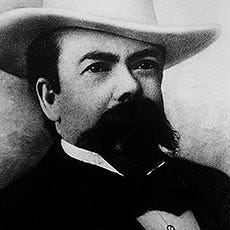Today In Black History: Nathan "Uncle Nearest" Green
The First Black Master Distiller Who Taught Jack Daniel How to Make Whiskey
Issue #723 Today In Black History, Thursday, September 12, 2024
Did you know that you can listen to each “We Are Speaking” post on the Substack App? Download the app!
Please share and subscribe to help us grow our publication.
If you like us, REALLY like us, please click the “Like” button at the end of this post!
We appreciate your support!
Nathan "Nearest" Green, known as the first African American master distiller, was born into slavery around 1820. He was renowned for his expertise in the Lincoln County Process, a unique method of filtering whiskey through charcoal before aging that imbues the spirit with a distinct smoothness and character.
Green's proficiency caught the attention of a young Jack Daniel, who would later found the now-iconic Jack Daniel’s Tennessee Whiskey. Green taught Daniel the art of distilling, making him the true backbone behind the brand that would become world-famous. For decades, Green’s crucial role was obscured. Only recently was the historical record corrected, and his contributions were formally recognized.


Jack Daniel opened his distillery in 1866 and immediately employed two of Green's sons, George and Eli Green. At least three of Green's sons were part of the Jack Daniel Distillery staff: George Green, Edde Green, and Eli Green. At least four of Nearest's grandchildren joined Jack Daniel’s team: Ott, Charlie, Otis, and Jesse Green. Seven generations of Nearest Green's descendants have worked for Jack Daniel Distillery, with three direct descendants continuing to work there as of November 2017.
Nathan "Nearest" Green was married to Harriet Green, and they had 11 children together—nine sons and two daughters. Four of their sons, Louis, George, Jesse, and Eli, are listed in the 1870 census, and seven sons and daughters are listed in the 1880 federal census.
Although no photographs of Nathan Nearest Green exist, the rediscovery of Nearest Green’s legacy can be mainly credited to the tireless efforts of historians, journalists, and Green’s descendants dedicated to setting the record straight. Fawn Weaver, an entrepreneur and historian, played a pivotal role in this endeavor. In 2017, she founded the Nearest Green Foundation to honor his memory and ensure his contributions to distilling were never forgotten again.
The foundation has since established scholarships and historical tours and even launched Uncle Nearest Premium Whiskey, a brand dedicated to commemorating Green’s pioneering work in the whiskey industry.
The Nearest Green Foundation is responsible for a new museum, memorial park, and book about his life. In addition, it has established college scholarships for Green's descendants.
In July 2017, Uncle Nearest, Inc. created a whiskey honoring the legacy of Nearest Green. Debuting as "Uncle Nearest 1856 Premium Whiskey", it was created by working with two Tennessee distilleries, but not the Jack Daniel Distillery.
In August 2017, Brown-Forman Corporation, which owns the Jack Daniel Distillery and brand, officially recognized Green as its first head stiller – now called master distiller – and added him to its website. In October 2017, Brown-Forman added his legacy to its official tours and a large display at the Jack Daniel's Visitors Center.
Today In Black History
In 1663, enslaved Africans in Gloucester County, Virginia, staged one of the first documented slave rebellions.
In 1867, General Edward Canby ordered South Carolina courts to impanel Black jurors.
In 1881, Black draftsman, electrical engineer, and inventor Lewis Latimer patented the carbon filament for electric light bulbs.
In 1925, HBCU Xavier University opened in New Orleans.
In 1980, the first United Negro College Fund marathon was performed.
Our paid subscribers are encouraged to discuss this post in our W.A.S. Chat Community.
Join Pamela Hilliard Owens’s subscriber chat
Available in the Substack app and on the web
You are also welcome to view “We Are Speaking” in Substack Notes. You can also read other Substack publications without subscribing to them when you join Notes.






